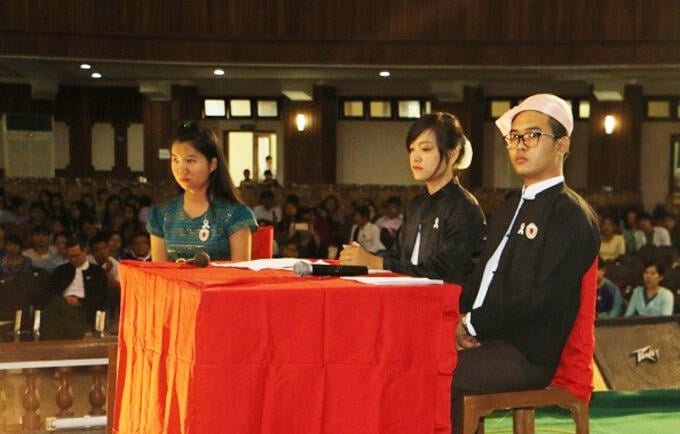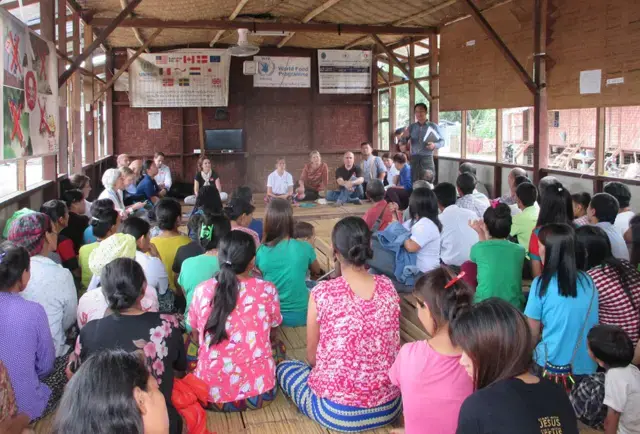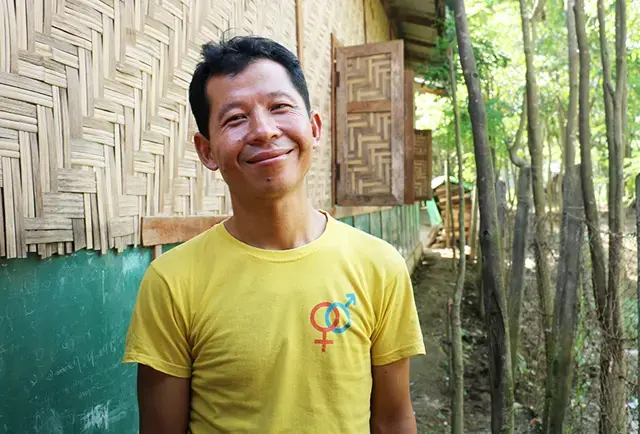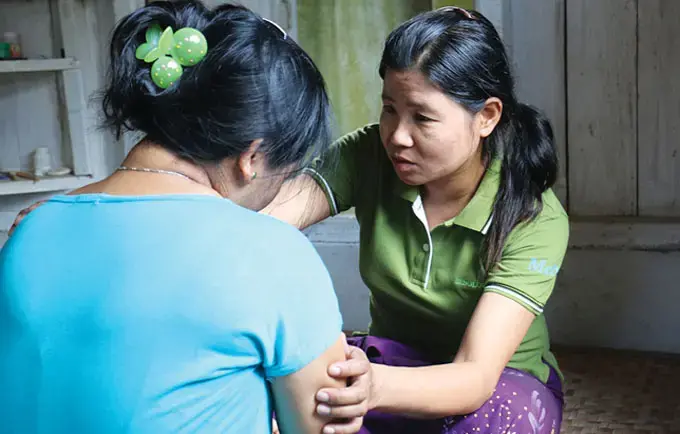Thuzar, an undergraduate student from Yangon’s Dagon University, read the statement by Dr. Babatunde Osotimehin, Executive Director, United Nations Population Fund, and agreed. The statement says that one in three women worldwide has experienced some form of physical or sexual violence, usually perpetrated by someone she knows.
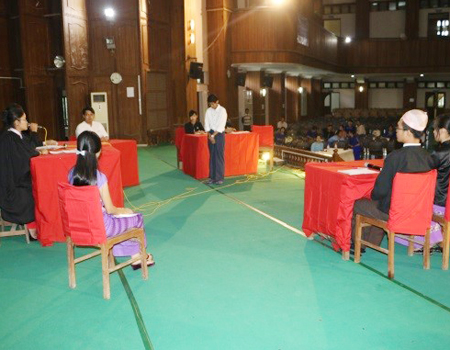
“The statement truly captures the plight of women across the world. You do not need to look afar. In our society, women have been looked down upon. It’s either by misconceived ideas or personal behavior.”
Thuzar is one of the participants in a “mock sentencing” event, held on 9 December on the university campus as part of the 16 Days of Activism against Gender-Based Violence. There were altogether three scenarios - cyber bullying, date rape and domestic violence – for the mock sentencing. About 50 law students took part, assuming various roles. Thuzar’s role in the mock trial was as a victim of cyber bullying. “It is a situation any woman could face these days,” she said, and then spoke about the experience of her elder sister in which a man befriended the young woman through Facebook, then blackmailed her to meet him. Thuzar explained: “It happened three years ago. That man violated her privacy, took advantage of friendship and sent messages. She became concerned, and not knowing what to do, she terminated her Facebook account. It’s cyber stalking, and very bad indeed.”
Moe Moe, a student from Dagon University, came to observe the mock trials. After watching three scenarios, she participated in the discussions. “These mock trials certainly make us think about gender equality, as well as human rights. Although our society revers elderly women, there have been numerous cases where women were abused, even by family members!” Then she went on to talk about domestic violence: “It is sad that many of us still think of a husband maltreating a wife as family affair. No need for others to interfere. It is often that others will interfere only when it is too late. And wives usually fail to report mistreatments lest it could jeopardize family relationships. However, we need to educate men – of all ages – to stop treating us like lesser human beings. I am not saying all men are, but we certainly must educate that both genders have equal human rights.”
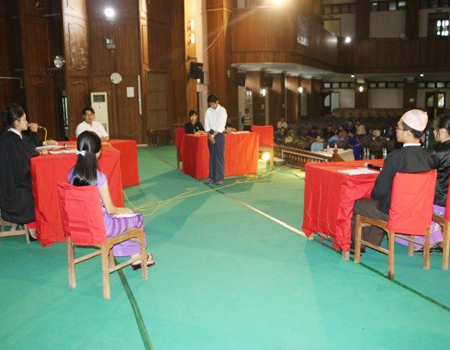
The recent political and social media developments have made the society more open. Min Min Tun is a 20-year-old undergraduate from Dagon University. When asked about gender equality, he was enthusiastic: “We need to be more careful about how we treat women. For example, the trial on date rape has certainly made us men think about our attitude and prejudices towards women. The scenario has taught me a lot – the most important being that women have their own feelings and emotions which we must respect.”
Thuzar, while enthusiastic about more open society, is still concerned: “I think we need to make everyone aware that it is one’s duty and moral obligation as well, to protect women from mistreatments – both physically and mentally. Only when women feel safe and happy in their surroundings, will families be happy, and then a nation could move forward.” She agreed that conceptions, behaviors and habits die hard: “You can not transform conceptions in a short time. It may change gradually. For the time being, I am happy that majority of our society have come to accept that gender-based violence exists. It is no longer a taboo topic in Myanmar society.”
The event was collaboratively co-organized and hosted by Dagon University, Bridges Across Borders South East Asia Community Legal Education Initiative (BABSEACLE), the United Nations Development Programme (UNDP), Yangon Rule of Law Center (ROLC), United Nations High Commission for Refugees (UNHCR) and the United Nations Population Fund (UNFPA).

